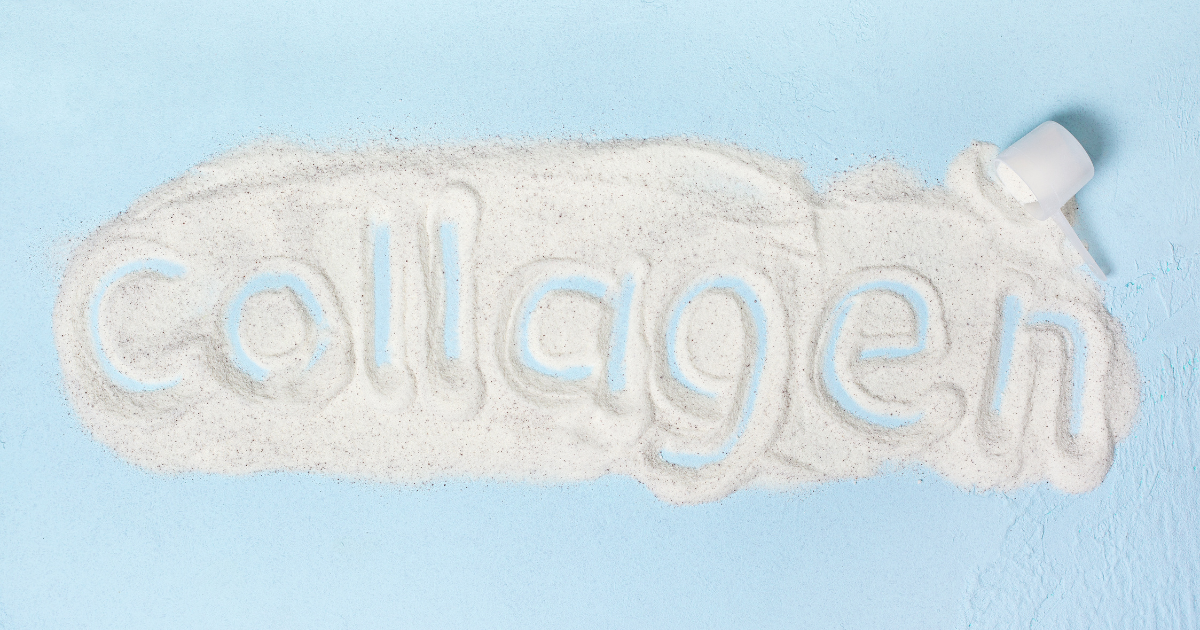If you've scrolled through social media lately, you've probably seen collagen everywhere – from powders promising glowing skin to supplements claiming to turn back time. But what exactly is collagen, and does it live up to the hype? Let's cut through the noise and explore what this protein actually does for your body.
What is Collagen and what does it do?
Think of collagen as your body's scaffolding. It's the most abundant protein in your body, making up about 30% of all your protein. This structural powerhouse is found in your skin, bones, muscles, tendons, and blood vessels – basically holding everything together.

|
In simple terms - collagen provides strength, structure, and elasticity to your tissues. |
In your skin, it's responsible for that plump, youthful appearance. In your joints, it helps maintain cartilage that keeps movement smooth and pain-free. For your bones, it provides the framework that calcium builds upon.
Why Collagen matters more as we age
Here's the not-so-fun fact: after age 25, we lose about 1% of our collagen each year. For women, this decline accelerates significantly during menopause due to dropping estrogen levels. This is why collagen benefits for women become particularly important as we age.
The visible signs? Fine lines, sagging skin, joint stiffness, and potentially weaker bones. But before you panic, remember that this is completely natural – and there's plenty you can do about it.
Natural ways to support your Collagen

The good news is that your body is constantly making new collagen, and you can support this process through your diet. Collagen-rich foods and natural collagen boosters include:
- Vitamin C powerhouses: Citrus fruits, berries, bell peppers, and leafy greens help your body produce collagen more effectively.
- Protein-rich foods: Bone broth, fish, chicken, and eggs provide the amino acids your body needs as building blocks.
- Zinc sources: Pumpkin seeds, chickpeas, and shellfish support Collagen synthesis.
- Antioxidant-rich foods: Think colourful vegetables and fruits that protect existing Collagen through a process called glycation.
Boosting collagen naturally also means protecting what you already have by wearing sunscreen, staying hydrated, and avoiding excessive sugar – which can damage collagen through a process called glycation.
Understanding Collagen supplements
When it comes to collagen supplementation, you may have heard of several types of collagen:
- Marine Collagen: Comes from fish and is often praised for its smaller molecular size, potentially making it easier to absorb. It's particularly rich in Type I Collagen, which as abundant in skin.
- Liquid Collagen: Offers convenience and potentially better absorption, though it often comes with addd sugars or artificial flavours.
- Bovine Collagen: (from cows) provides Type I and III Collagen, supporting skin, bones, and muscles.
The research on collagen benefits shows some promising results, particularly for skin hydration and joint health. However, it's worth noting that your digestive system breaks down collagen supplements into amino acids – the same building blocks you'd get from a varied protein-rich diet.
Collagen for skin: Realistic expectations
While collagen benefits for skin are often the main selling point, it's important to have realistic expectations. Some studies suggest that collagen supplements may improve skin hydration and elasticity, but the effects are typically modest and take several months to appear.
Your skin's appearance is influenced by many factors: genetics, sun exposure, overall nutrition, hydration, and lifestyle habits. Collagen supplements might be one piece of the puzzle, but they're not a magic solution.
Potential side effects to consider
Side effects of collagen supplements are generally mild but worth knowing about. Some people experience digestive upset, particularly when starting supplements. Marine collagen might cause reactions in those with fish allergies, while bovine sources could be problematic for those with beef sensitivities.
As with any supplement, quality matters. Look for third-party tested products and consider starting with a smaller dose to see how your body responds.
The summary
Collagen is undeniably important for your body's structure and function. While aging naturally reduces production, focusing on a nutrient-dense diet rich in vitamin C, quality protein, and antioxidants is your best foundation for supporting natural collagen production.
Supplements might offer additional benefits for some people, but they work best as part of a holistic approach that includes good nutrition, sun protection, and healthy lifestyle habits. Remember, there's no single solution to aging gracefully – it's about nourishing your body consistently over time.



